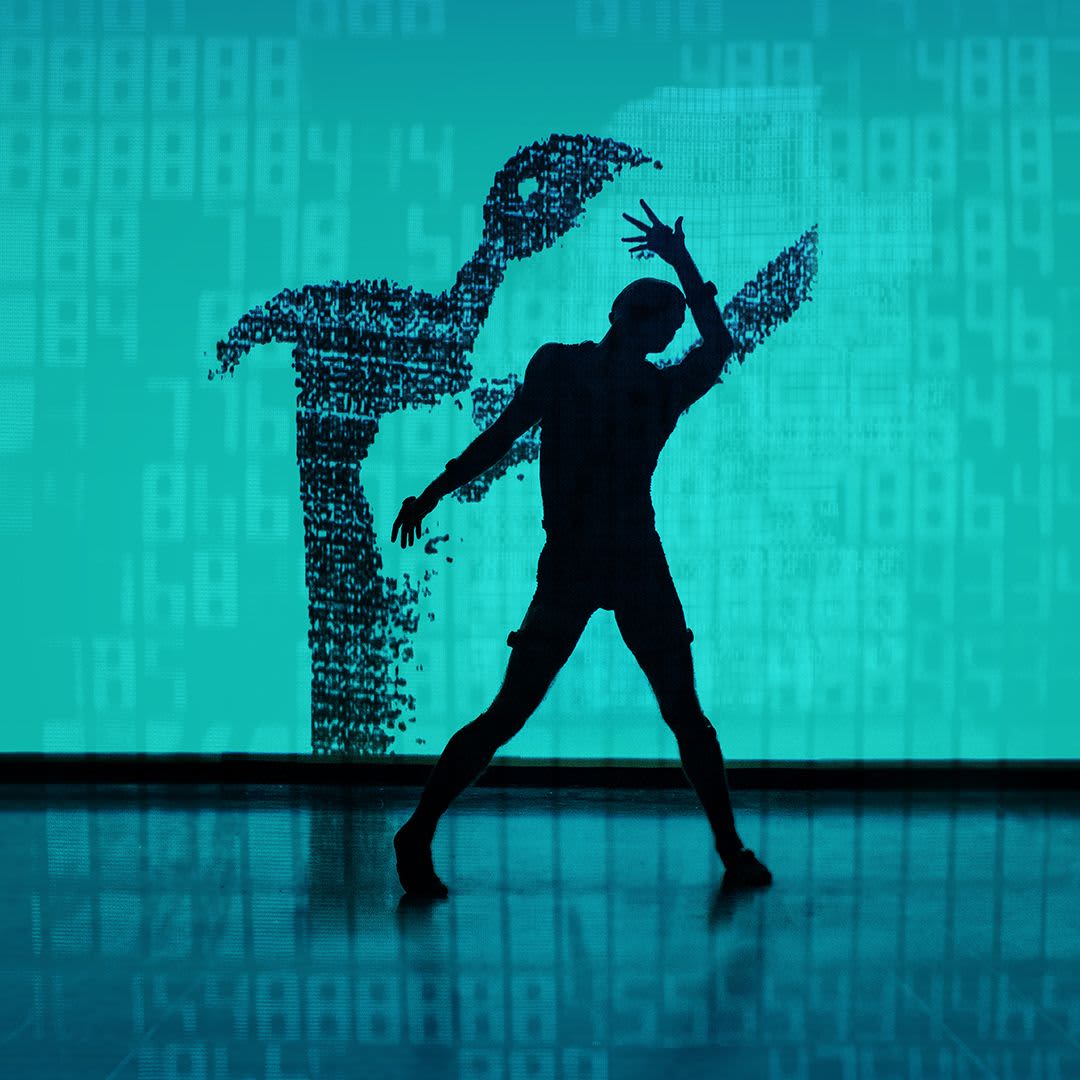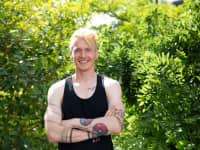Next month, Alexander Whitley Dance Company bring their new performance Anti-Body to Oxford Playhouse for IF Oxford, the science and ideas Festival, exploring the biological form of the human body and the technological drive to transcend it. We talk to Sadler’s Wells New Wave Associate Alexander Whitley about the forthcoming show and what inspired it.
Tell us about Anti-Body
“Anti-Body is our latest stage production. It’s a full-length work for three performers working with motion capture technology and interactive projections. We’re returning to using live interactive technology as part of a stage production and what’s new and exciting for this show is that we’re working with full body recognition suits.
Previously we worked with tracking devices which sent out infra-red light onto the stage and recognised the shape of a dancer’s body. This was great because the dancers didn’t need to wear anything in particular on their body but the accuracy of the tracking wasn’t that good, lending itself to more abstract visuals. The suits that we’re using in Anti-Body are far more accurate and give rich detail about the movement of the body, so the quality of the visuals generated by the movement of the dancers is far superior to anything we’ve done in the past and for that reason we’re focussing much more on the form of the body.”
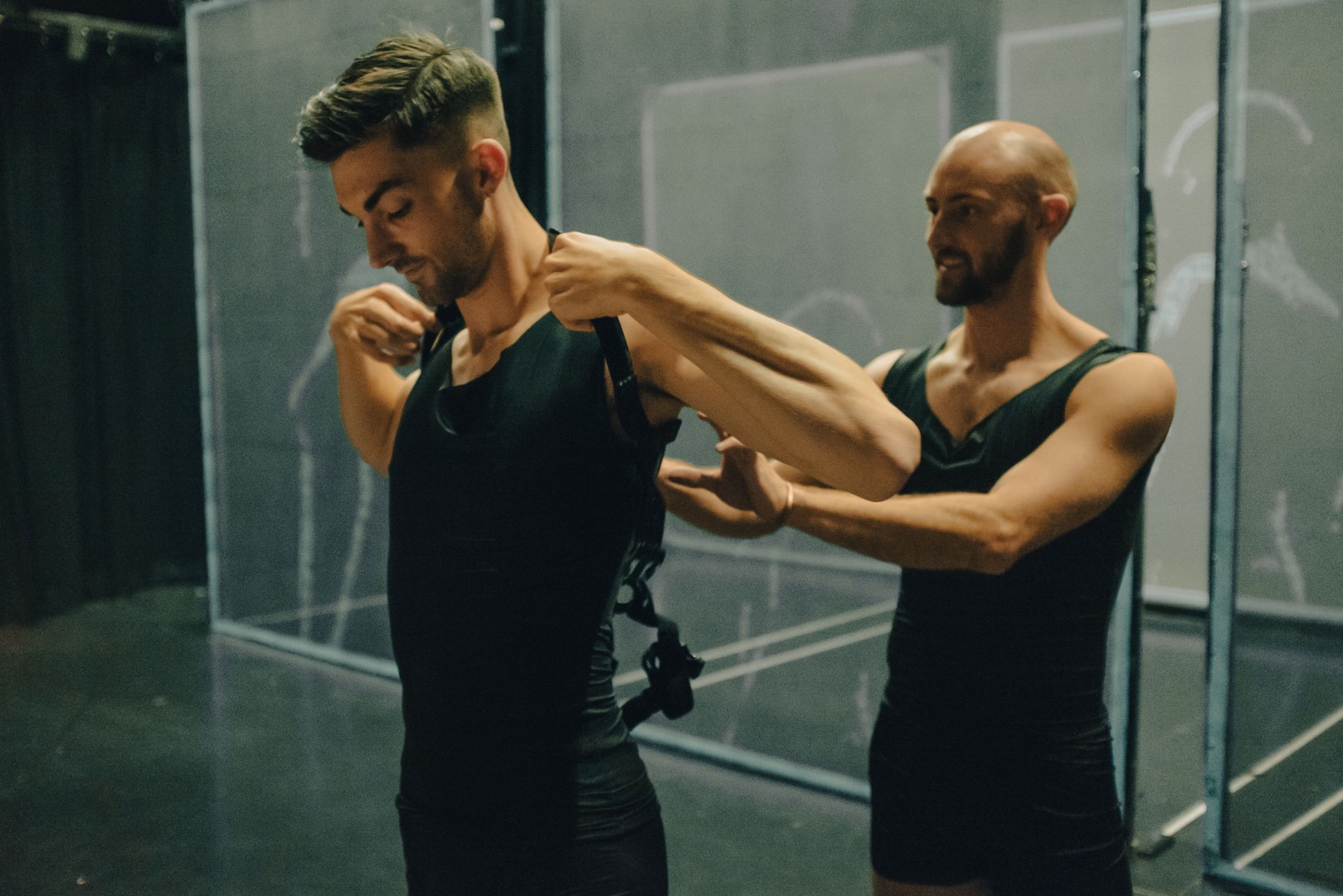
What ideas is Anti-Body exploring?
“The theme of the performance is very strongly driven by the role of technology in the world. The title Anti-Body has an obvious reading in the world whilst we are living through a pandemic, but I’m interested in the subject of the post-human or trans-human, which, in its most extreme form is the idea that we can download someone’s mind onto a computer chip. I find this both fascinating and completely absurd, but an example of digital technology’s tendency to dematerialise experience and pull us away from a reality grounded in the flesh. So the piece asks questions and explores themes around what it means to exist in this hybrid, real / virtual world.”
“We’re also inspired by a question that writer Yuval Noah Harari asks at the end of his book Homo Deus, whether life is just data-processing. Can everything be thought of and understood as data processing at a very basic level and what does that mean? If organisms are just algorithms, can everything be reduced to data-processing and ultimately be consumed within a single technological system? These are the kind of ideas we’ve been exploring and hopefully will be really present in the production.”
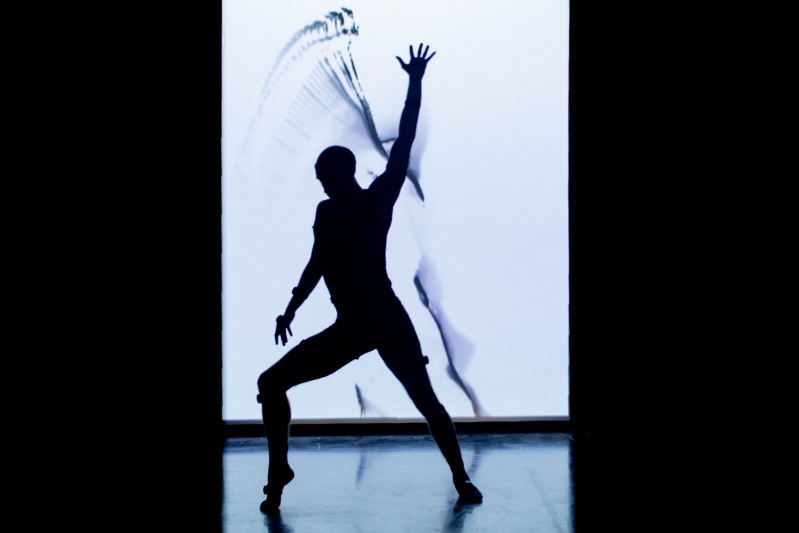
What was the starting point for the production?
“There were lots of starting points! I’ve been reading around the subject and various books informed my thinking. It was a question of identifying some first principles or fundamental ideas in relation to which we could start to ask questions of the body and see how those ideas work to generate movement ideas: it’s a process of translation, taking ideas from the domain of language and thought related to language and turning them into movement, into the body. On the one hand there’s the relationship between thinking of the body and our material existence as abstract patterning – if it can be reduced down to information, can we see and understand the body just as an abstract pattern? At the opposite extreme, what is the kind of information and meaning that is communicated through our social interactions and the gestures and communication that are part of our immediate social life? For the show, we have been exploring a range of material from the gestural and expressive features of the human body to the abstract, expressing those abstract patterns through movement.”
“There’s something really significant about the idea of the self in this piece: post-humanism takes the position that there isn’t a single stable self – that’s the traditional humanist perspective on which notions of free human will and human rights are predicated. We are multiple selves that find expression in different contexts and that we are distributed: we don’t exist in a single place. We are thinking beings, and our social lives are diffuse, spread out over the various forms of digital media and information technology that we communicate through. The idea that there isn’t a stable centre of the self can be translated into something physical. The analogies that can be drawn between the more philosophical concepts and physical concepts have been starting points and we’ve found the ways to render these ideas into a physical representation.”
Tell us about the music for the show
“We’ve worked with two composers on this piece. Emmy-nominated composer Hannah Peel and a DJ and music producer Kincaid. They visited the dance studio and responded to what they saw. Kincaid then developed pieces of Hannah’s material into a score for the performance, linking sections together and finding transitions between elements and motifs that could act as markers creating an integrated score rather than a series of separate tracks. One of the challenges of making mixed-media interdisciplinary work is that everything is responding to everything else in it! The visuals are highly-integrated with the movement, driven by the movement of the dancers; the choreography has to be appropriate for the visual language we’re working in and both of those then have to sit comfortably in relation to the music. The choreography and the visuals can reveal or highlight different features of the music so there are different layers of relationship and interpretation. Having one of those pinned down first is really helpful so the music came first in that respect and followed by the other layers of the show.”
“Kincaid works at the electronic end of the spectrum whilst Hannah works across a wide range of styles, some of them more song-based, and this acoustic electronic mix gave us real scope for a journey over the course of a piece. There’s a lot of voice in the work, even in the more electronic and abstract works, which gives a tangible connection to the body: the material presence of the body in those layers of electronics seemed appropriate for the subject matter we are exploring in Anti-Body.”
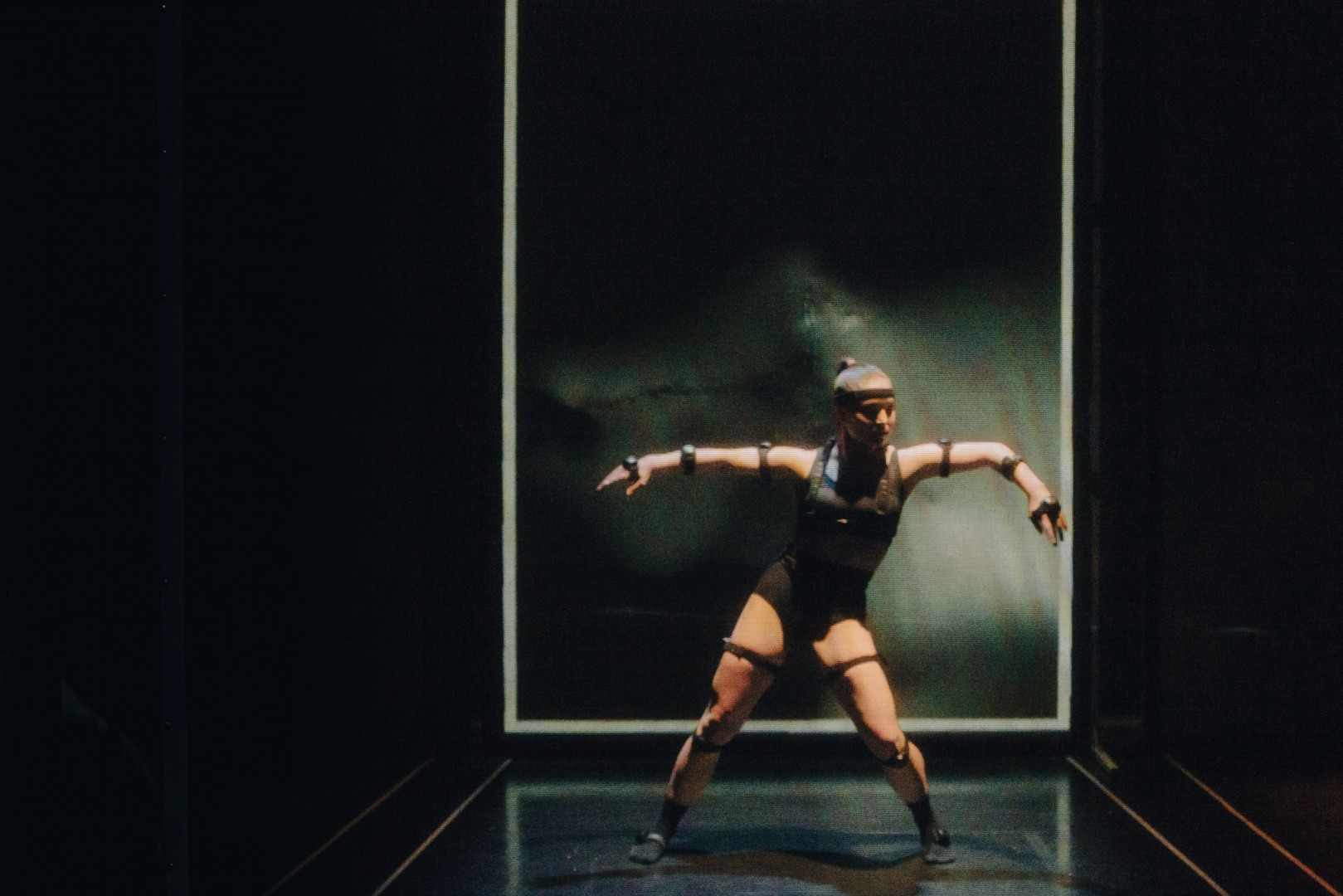
Book your tickets to see Anti-Body at 7.30pm on Tuesday 26th October via www.oxfordplayhouse.com
